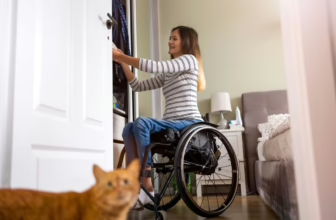In recent years, Boise families have grown to rely on a network of mental health and support programs embedded in local schools. From counselors providing crisis intervention to school-based initiatives that help students navigate anxiety and depression, these services have become vital for teens and their parents alike.
But in early 2025, several of these supports—especially those tied to pilot funding or COVID-era grants—have begun to fade. Parents are now asking: What happens to kids when the school-based safety net disappears?
The Quiet Crisis: School Support Programs Winding Down
Boise’s school districts, including West Ada and Kuna, benefited in past years from federal and state-level funding initiatives to address youth mental health. Programs like the Strong Families, Strong Students fund and other grant-supported initiatives brought social workers, school psychologists, and mental health liaisons into everyday school life.
However, those resources weren’t guaranteed to last. In early 2025, school administrators across the Treasure Valley confirmed that many of these programs are being phased out due to expired grant cycles and shifting legislative priorities.
For teens who relied on consistent counseling or check-ins at school, the loss isn’t abstract—it’s deeply personal. And for parents, the gap in support services is causing renewed concern.
“My daughter saw the same counselor every week during 9th and 10th grade,” says one Boise parent. “Now that counselor’s position was cut, and there’s no replacement. We feel like we’re on our own again.”
Mental Health Struggles Persist Beyond the Classroom
Even as funding dries up, the underlying issues remain unchanged. According to the Idaho Department of Health and Welfare, rates of anxiety, depression, and suicidal ideation among teens remain elevated in 2025, particularly in Ada County, where Boise is located. Nearly 40% of high school students in Idaho reported persistent feelings of sadness or hopelessness in the last year.
At the same time, youth population growth in the Boise metro continues. With over 240,000 residents in Boise proper and hundreds more families moving into the surrounding suburbs monthly, the demand for mental health support only grows. Schools are overwhelmed, and without additional state-level reinvestment, many are unable to meet this growing need.
How Residential Care Can Fill the Gaps
For some families, the absence of school-based care is pushing them to consider more structured interventions, especially when emotional or behavioral issues begin to disrupt home life, relationships, or academic progress.
That’s where programs for troubled teens come into play. While not a first step for every situation, residential programs offer a focused environment where teens receive daily therapeutic support, behavioral counseling, and academic continuity. These programs are particularly helpful for teens facing intense struggles like chronic school refusal, emotional dysregulation, or unresolved trauma.
Unlike school-based counseling, residential care offers immersive, round-the-clock support. It’s a place where teens can reset without the stressors of their normal routine—while still progressing toward recovery with help from licensed professionals.
Families Need Options, Not Dead Ends
The winding down of grant-funded school programs has left many Boise parents feeling cornered. When your child’s mental health is on the line, it can be frightening to realize that school no longer offers a consistent safety net.
But this isn’t the end of the road. Local organizations, therapists, and residential care providers in Idaho are working to ensure that families still have choices—especially when teens need more than what outpatient or school-based services can provide.
In the words of one local clinician:
“Families need to know they’re not alone. The support landscape is changing, but that doesn’t mean it’s gone. It just means we may have to look in new places.”
One of those places is the residential mental health care sector, which continues to evolve and expand in Idaho in response to growing youth needs.
When School Stops Showing Up, You Still Can
If you’re a parent in Boise and your teen is facing serious challenges with anxiety, anger, withdrawal, or behavioral issues, it’s OK to ask for help outside the school system. Some teens need more than a few counseling sessions at school. They need time, structure, and a safe place to work through what they’re feeling.
That’s why programs for troubled teens exist — not as a replacement for family or school, but as an added layer of support when local systems fall short.
Earl Wagner is a content strategist who specializes in data-driven writing for the mental health sector. His work focuses on increasing awareness of local resources for teens and their families.








